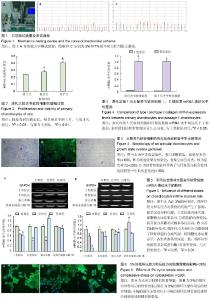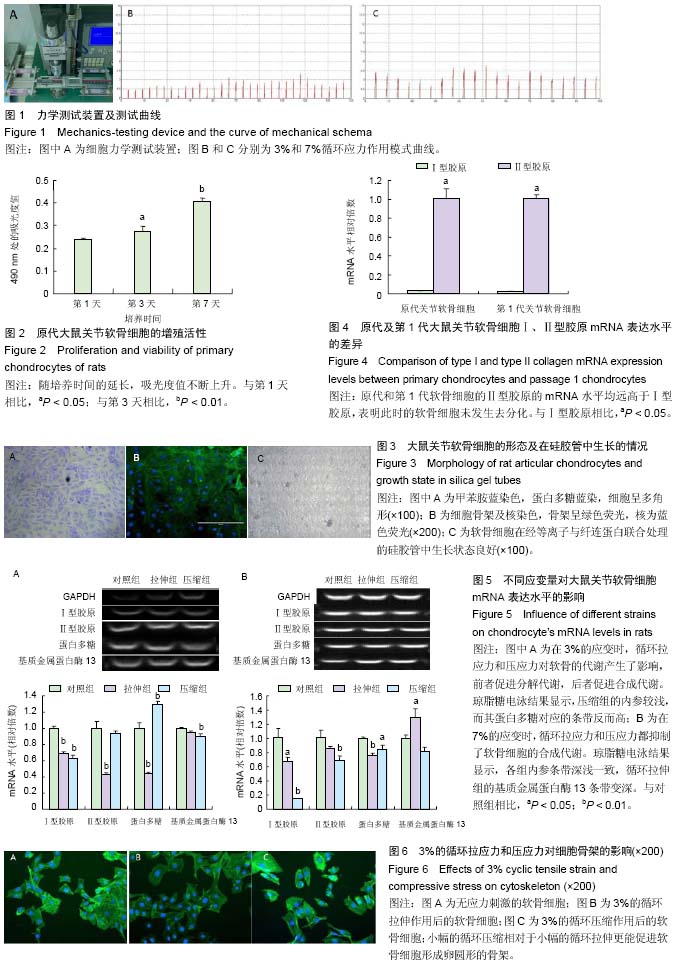| [1] Visser AW, de Mutsert R, le Cessie S, et al. The relative contribution of mechanical stress and systemic processes in different types of osteoarthritis: the NEO study. Ann Rheum Dis. 2015;74(10):1842-1847.
[2] Anderson JJ, Felson DT. Factors associated with osteoarthritis of the knee in the first national Health and Nutrition Examination Survey (HANES I). Evidence for an association with overweight, race, and physical demands of work. Am J Epidemiol. 1988;128(1):179-189.
[3] Jungmann PM, Kraus MS, Alizai H, et al. Association of metabolic risk factors with cartilage degradation assessed by T2 relaxation time at the knee: data from the osteoarthritis initiative. Arthritis Care Res (Hoboken). 2013;65(12):1942-1950.
[4] Lee SH, Lee JH, Ahn SE, et al. Correlation between Quadriceps Endurance and Adduction Moment in Medial Knee Osteoarthritis. PLoS One. 2015;10(11): e0141972.
[5] O'Connell M, Farrokhi S, Fitzgerald GK. The role of knee joint moments and knee impairments on self-reported knee pain during gait in patients with knee osteoarthritis. Clin Biomech (Bristol, Avon). 2016;31:40-46.
[6] Wong M, Siegrist M, Goodwin K. Cyclic tensile strain and cyclic hydrostatic pressure differentially regulate expression of hypertrophic markers in primary chondrocytes. Bone. 2003;33(4):685-693.
[7] Bleuel J, Zaucke F, Brüggemann GP, et al. Moderate cyclic tensile strain alters the assembly of cartilage extracellular matrix proteins in vitro. J Biomech Eng. 2015;137(6):061009.
[8] Mabvuure N, Hindocha S, Khan WS. The role of bioreactors in cartilage tissue engineering. Curr Stem Cell Res Ther. 2012;7(4):287-292.
[9] Jakob M, Démarteau O, Schäfer D, et al. Enzymatic digestion of adult human articular cartilage yields a small fraction of the total available cells. Connect Tissue Res. 2003;44(3-4):173-180.
[10] Duan W, Wei L, Cao X, et al. Effect of the disruption of three cytoskeleton components on chondrocyte metabolism in rabbit knee cartilage. Chin Med J (Engl). 2014;127(21):3764-3770.
[11] Duan W, Wei L, Zhang J, et al. Alteration of viscoelastic properties is associated with a change in cytoskeleton components of ageing chondrocytes from rabbit knee articular cartilage. Mol Cell Biomech. 2011; 8(4):253-274.
[12] Madhavan S, Anghelina M, Rath-Deschner B, et al. Biomechanical signals exert sustained attenuation of proinflammatory gene induction in articular chondrocytes. Osteoarthritis Cartilage. 2006;14(10):1023-1032.
[13] Luo Y, Zhang L, Wang WY, et al. Alendronate retards the progression of lumbar intervertebral disc degeneration in ovariectomized rats. Bone. 2013;55(2): 439-448.
[14] Nam J, Rath B, Knobloch TJ, et al. Novel electrospun scaffolds for the molecular analysis of chondrocytes under dynamic compression. Tissue Eng Part A. 2009; 15(3):513-523.
[15] Amini S, Mortazavi F, Sun J, et al. Stress relaxation of swine growth plate in semi-confined compression: depth dependent tissue deformational behavior versus extracellular matrix composition and collagen fiber organization. Biomech Model Mechanobiol. 2013; 12(1):67-78.
[16] Amini S, Veilleux D, Villemure I. Tissue and cellular morphological changes in growth plate explants under compression. J Biomech. 2010;43(13):2582-2588.
[17] Wu L, Gonzalez S, Shah S, et al. Extracellular matrix domain formation as an indicator of chondrocyte dedifferentiation and hypertrophy. Tissue Eng Part C Methods. 2014;20(2):160-168.
[18] Demoor M, Ollitrault D, Gomez-Leduc T, e al. Cartilage tissue engineering: molecular control of chondrocyte differentiation for proper cartilage matrix reconstruction. Biochim Biophys Acta. 2014;1840(8): 2414-2440.
[19] Gründer T, Gaissmaier C, Fritz J, et al. Bone morphogenetic protein (BMP)-2 enhances the expression of type II collagen and aggrecan in chondrocytes embedded in alginate beads. Osteoarthritis Cartilage. 2004;12(7):559-567.
[20] Jonitz A, Lochner K, Tischer T, et al. TGF-β1 and IGF-1 influence the re-differentiation capacity of human chondrocytes in 3D pellet cultures in relation to different oxygen concentrations. Int J Mol Med. 2012; 30(3):666-672.
[21] Pei M, Seidel J, Vunjak-Novakovic G, et al. Growth factors for sequential cellular de- and re-differentiation in tissue engineering. Biochem Biophys Res Commun. 2002;294(1):149-154.
[22] Loeser RF. Integrins and chondrocyte-matrix interactions in articular cartilage. Matrix Biol. 2014;39: 11-16.
[23] Mao Y, Schwarzbauer JE. Fibronectin fibrillogenesis, a cell-mediated matrix assembly process. Matrix Biol. 2005;24(6):389-399.
[24] Maenz S, Hennig M, Mühlstädt M, et al. Effects of oxygen plasma treatment on interfacial shear strength and post-peak residual strength of a PLGA fiber-reinforced brushite cement. J Mech Behav Biomed Mater. 2016;57:347-358.
[25] Gao Y, Liu S, Huang J, et al. The ECM-cell interaction of cartilage extracellular matrix on chondrocytes. Biomed Res Int. 2014;2014:648459.
[26] Chen C, Wei X, Lv Z, et al. Cyclic Equibiaxial Tensile Strain Alters Gene Expression of Chondrocytes via Histone Deacetylase 4 Shuttling. PLoS One. 2016; 11(5): e0154951.
[27] 余晓明,孟昊业,孙振,等.生物反应器中的力学刺激促进组织工程软骨再生[J].中国组织工程研究,2016,20(2): 185-190.
[28] Matsukawa M, Fukuda K, Yamasaki K, et al. Enhancement of nitric oxide and proteoglycan synthesis due to cyclic tensile strain loaded on chondrocytes attached to fibronectin. Inflamm Res. 2004;53(6):239-244.
[29] Shimizu A, Watanabe S, Iimoto S, et al. Interleukin-4 protects matrix synthesis in chondrocytes under excessive mechanical stress in vitro. Mod Rheumatol. 2004;14(4):296-300.
[30] Bleuel J, Zaucke F, Brüggemann GP, et al. Effects of cyclic tensile strain on chondrocyte metabolism: a systematic review. PLoS One. 2015;10(3):e0119816.
[31] Kaviani R, Londono I, Parent S, et al. Compressive mechanical modulation alters the viability of growth plate chondrocytes in vitro. J Orthop Res. 2015; 33(11):1587-1593.
[32] Kaviani R, Londono I, Parent S, et al. Growth plate cartilage shows different strain patterns in response to static versus dynamic mechanical modulation. Biomech Model Mechanobiol. 2015. in press.
[33] Sergerie K, Parent S, Beauchemin PF, et al. Growth plate explants respond differently to in vitro static and dynamic loadings. J Orthop Res. 2011;29(4): 473-480. |

